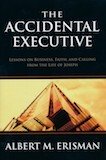The Fast of Justice
Daily Reflection / Produced by The High Calling
“Is this not the kind of fasting I have chosen: to loose the chains of injustice and untie the cords of the yoke, to set the oppressed free and break every yoke?”
Isaiah 58:
The history of the ancient Israelites presents us with a trajectory that resembles a thrill ride with breathtaking peaks and bleak valleys. They experienced God’s great acts of deliverance on many occasions, but regularly suffered from a case of amnesia and forgot the God who delivered them. Though they were to be a people whose lives modeled the holiness and goodness of God, they often fell prey to the temptations of power and materialism. Some among the Israelites accumulated wealth and influence and used their power to create a society that gave favor to “the right kind of people” and oppressed others. We also see this theme in the minor prophets when God warns them that Israel will go into exile.
God himself is the definition and standard for justice, and he expected his covenant people to practice justice differently from other nations. Isaiah 58 shows us God’s response to his people when they wonder why God doesn’t respond to their pious act of fasting. In reply, God tells them that their piety is empty when they continue to live in rebellion. Though they may check all the right boxes for the technique of fasting, their daily behaviors reveal the true story. The kind of piety God desires requires them to live peacefully and to pursue justice in their midst.
Sometimes the pursuit of justice may seem like the latest trendy Christian pursuit, but this would be a cynical response. God’s people should be the standard bearers of justice in the world. In recent years, the focus on social justice sometimes gets a skeptical reaction from Christians who may question the strategy or political posture associated with some well-known justice advocates. Our proper response is not to leave justice to the secular world, but to practice discernment so that even if we disagree with the strategy of others, we remain committed to honoring God by praying and seeking for a world where justice reigns.
QUESTIONS FOR REFLECTION: Why do you think God sent the Israelites into exile? Was their systemic injustice a contributing factor? What makes you nervous about the ways some Christians pursue justice today? How do you pray for and seek justice in the world?
PRAYER: Our great and mighty God, you who are holy, mighty, righteous, and just, help us to learn from the history of Israel. Lord, help us grow in our discernment so that your church may be known for sharing and conveying your heart of justice. Help us to grow in our understanding of justice, and help us to go about our lives in the world with a witness that tells others that we truly belong to you. This we pray in the name of Christ our Lord. Amen.
________________________________________________________
P.S. from Mark: Dr. Vincent Bacote has been on the faculty at Wheaton College since 2000 where he is currently Associate Director of Theology and Director of Center for Applied Christian Ethics. His work on Abraham Kuyper, race, ethics, and other topics has appeared in publications such as Commet, Cambridge Dictionary of Christian Theology, Christianity Today, and his book The Spirit in Public Theology: Appropriating the Legacy of Abraham Kuyper. Marcus Goodyear, Senior Editor of The High Calling, first met Dr. Bacote at the Jubilee Conference and we have been looking for opportunities to work together ever since. We are excited to have him leading us this week as our "guest reflector," and we commend his work with enthusiasm!
Image courtesy of Laity Lodge Family Camp, one of our sister programs in the Foundations for Laity Renewal.






